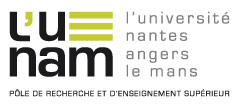Diagnostic performance of the DISQVER metagenomic sequencing tool for the identification of pathogens in febrile neutropenic patients: the ADNEMIA trial
Résumé
Introduction: While intensive protocols in oncohaematology have improved survival rates for patients with haematological malignancies, they have also resulted in an increased incidence of infection associated with therapy-induced immunosuppression (including chemotherapy-induced febrile neutropenia; FN). The occurrence of FN, associated with high morbidity and mortality, necessitates broad-spectrum antibiotic therapy, occasioning delayed chemotherapy and resulting in a loss of opportunity for the patient. Considering that without an identified pathogen, a 10% mortality rate can ensue, documentation is essential to the optimisation of antibiotic therapy. However, blood culture (the reference test) is limited for several reasons: such as fastidious culture, antibiotic treatment prior to sampling or insufficient sample volume. Sequencing technologies have led to the development of diagnostic approaches based on the detection of circulating DNA in blood. This study will aim to assess the clinical utility of metagenomic next-generation sequencing (mNGS)-DISQVER technology in detecting pathogenic microorganisms from blood samples of patients undergoing high-risk FN treatment.
Methods and analysis: This nationwide, prospective, multicentre, interventional, proof-of-concept clinical trial will enrol 200 patients. Will include patients≥18 years old, treated for malignancy, at high risk of FN (Multinational Association for Supportive Care in Cancer score≤21) with an expected duration of neutropenia≥7 days. Patients who received antibiotic treatment within 24 hours prior to enrolment, have previously participated and/or have enhanced protection will be excluded. The primary outcome will be determined by considering the microorganisms responsible for this FN, weighted by the assessment of an adjudication committee. Secondary outcomes will evaluate patient management depending on the arm. The second secondary outcome will be determined by the duration of conventional assessment, frequency of microorganisms detected during routine care and percentage distribution of theoretical adjustments made to anti-infective treatment based on microorganisms diagnosed using the mNGS-DISQVER tool as compared with conventional practices. Identifying the pathogens responsible for high-risk FN from a blood sample, using an unbiased technique, can provide microbiological documentation and may even reveal unexpected microorganisms in these profoundly immunocompromised patients.
Ethics and dissemination: The protocol received approval from the Comité de Protection des Personnes Sud-Méditerranée II. All participants will provide informed consent before participation. The trial has been registered on ClinicalTrials. gov (identifier NCT06075888). The results of the main trial and each of the secondary endpoints will be submitted for publication in a peer-reviewed journal.
Trial registration number ClinicalTrials. gov NCT06075888.
Methods and analysis: This nationwide, prospective, multicentre, interventional, proof-of-concept clinical trial will enrol 200 patients. Will include patients≥18 years old, treated for malignancy, at high risk of FN (Multinational Association for Supportive Care in Cancer score≤21) with an expected duration of neutropenia≥7 days. Patients who received antibiotic treatment within 24 hours prior to enrolment, have previously participated and/or have enhanced protection will be excluded. The primary outcome will be determined by considering the microorganisms responsible for this FN, weighted by the assessment of an adjudication committee. Secondary outcomes will evaluate patient management depending on the arm. The second secondary outcome will be determined by the duration of conventional assessment, frequency of microorganisms detected during routine care and percentage distribution of theoretical adjustments made to anti-infective treatment based on microorganisms diagnosed using the mNGS-DISQVER tool as compared with conventional practices. Identifying the pathogens responsible for high-risk FN from a blood sample, using an unbiased technique, can provide microbiological documentation and may even reveal unexpected microorganisms in these profoundly immunocompromised patients.
Ethics and dissemination: The protocol received approval from the Comité de Protection des Personnes Sud-Méditerranée II. All participants will provide informed consent before participation. The trial has been registered on ClinicalTrials. gov (identifier NCT06075888). The results of the main trial and each of the secondary endpoints will be submitted for publication in a peer-reviewed journal.
Trial registration number ClinicalTrials. gov NCT06075888.
| Origine | Fichiers éditeurs autorisés sur une archive ouverte |
|---|

